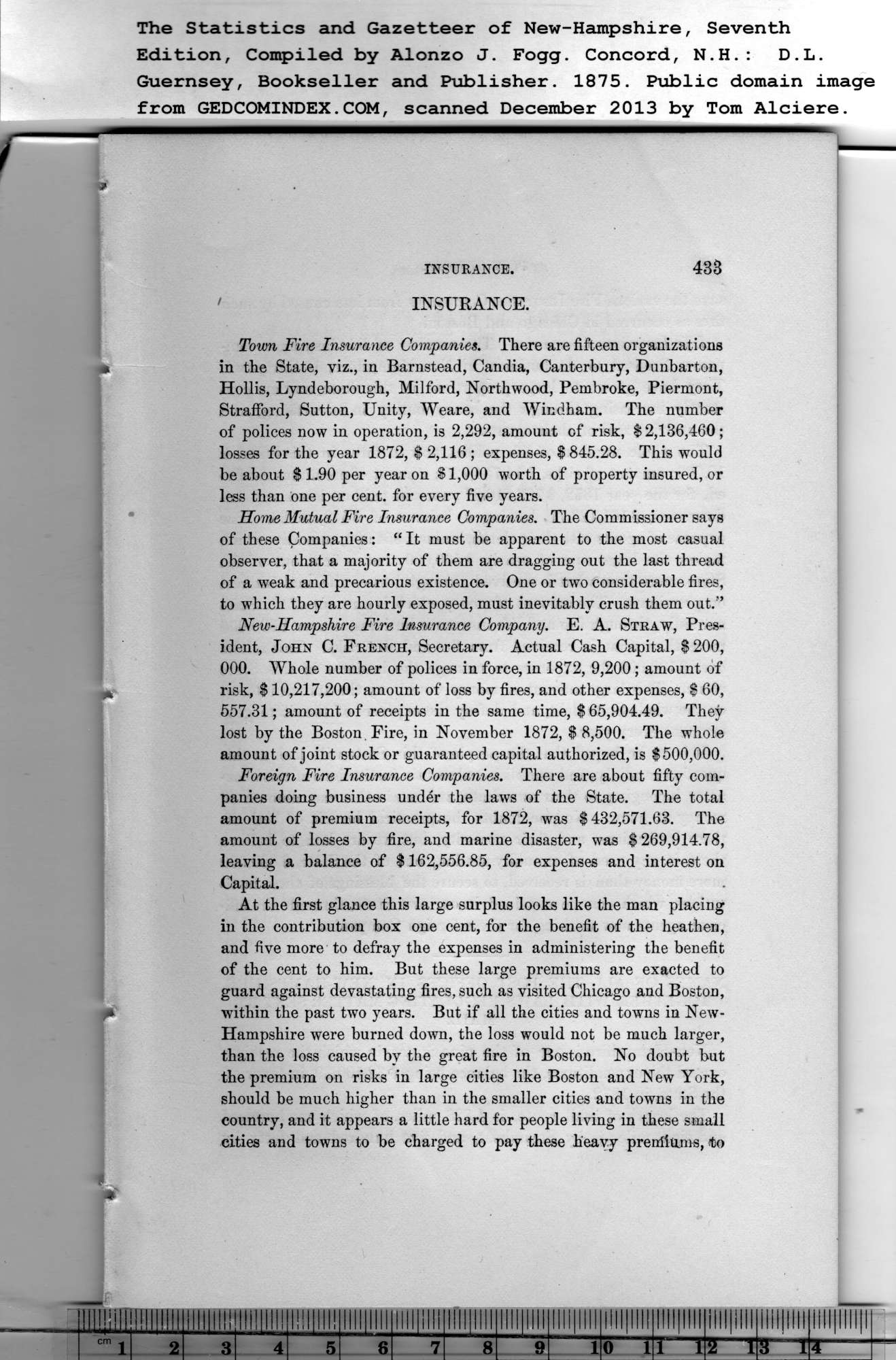|
INSURANCE. 483
' INSURANCE.
Town Fire Insurance Companies. There are fifteen organizations
in the State, viz., in Barnstead, Candia, Canterbury, Dunbarton,
Hollis, Lyndehorough, Milford, Northwood, Pembroke, Piermont,
Strafford, Sutton, Unity, Weare, and Windham. The number
of polices now in operation, is 2,292, amount of risk, $ 2,136,460;
losses for the year 1872, $ 2,116 ; expenses, $845.28. This would
be about $ 1.90 per year on $ 1,000 worth of property insured, or
less than one per cent, for every five years.
Home Mutual Fire Insurance Companies. The Commissioner says
of these Companies: “It must be apparent to the most casual
observer, that a majority of them are dragging out the last thread
of a weak and precarious existence. One or two considerable fires,
to which they are hourly exposed, must inevitably crush them out.”
New-Hampshire Fire Insurance Company. E. A. Straw, Pres-
ident, John C. French, Secretary. Actual Cash Capital, $ 200,
000. Whole number of polices in force, in 1872, 9,200; amount of
risk, $ 10,217,200; amount of loss by fires, and other expenses, $ 60,
557.31; amount of receipts in the same time, $ 65,904.49. They
lost by the Boston . Fire, in November 1872, $8,500. The whole
amount of joint stock or guaranteed capital authorized, is $500,000.
Foreign Fire Insurance Companies. There are about fifty com-
panies doing business under the laws of the State. The total
amount of premium receipts, for 1872, was $432,571.63. The
amount of losses by fire, and marine disaster, was $269,914.78,
leaving a balance of $ 162,556.85, for expenses and interest on
Capital.
At the first glance this large surplus looks like the man placing
in the contribution box one cent, for the benefit of the heathen,
and five more to defray the expenses in administering the benefit
of the cent to him. But these large premiums are exacted to
guard against devastating fires, such as visited Chicago and Boston,
within the past two years. But if all the cities and towns in New-
Hampshire were burned down, the loss would not be much larger,
than the loss caused by the great fire in Boston. No doubt but
the premium on risks in large cities like Boston and New York,
should be much higher than in the smaller cities and towns in the
country, and it appears a little hard for people living in these small
cities and towns to be charged to pay these heavy prenfituns, ito
PREVIOUS PAGE ... NEXT PAGE
This page was written in HTML using a program written in Python 3.2
|
